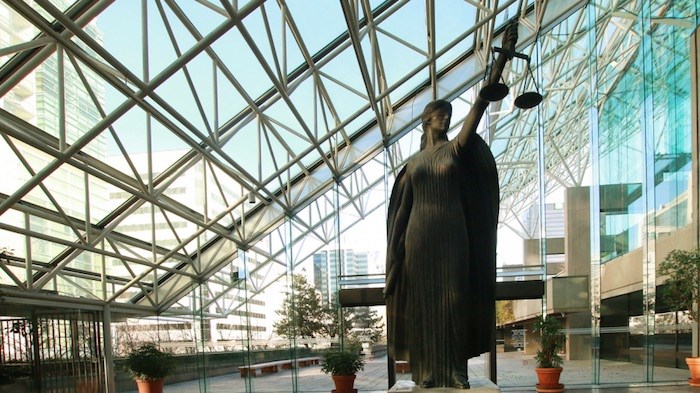Two Indigenous women in B.C. have filed a proposed class-action lawsuit against the province, alleging they were subject to forced sterilization.
Lorraine Davis and Stephanie Roy, in a B.C. Supreme Court notice of civil claim filed Feb. 22, said they were either sterilized or had a child aborted without full knowledge of procedures or consent for what they were undergoing.
“The term ‘coerced sterilization’ means the practice of sterilizing a person in the absence of that person’s free full and informed consent,” the claim, filed by lawyer Angela Bespflug, said. “Coerced sterilization is a form of sexual assault.”
The suit continues to say such sterilization of Canadian Indigenous women began in the 1920s, with many victims being women in labour or those who had just given birth.
Davis is a member of the Penticton Indian Band living in Campbell River. The claim said she was due to give birth to her second son on Sept. 20, 1983 by caesarean section at Campbell River Hospital.
Moments before the surgery, the claim said, she was given documents authorizing a tubal ligation. She signed without knowing what she was signing and received no advice about sterilization.
“There was no valid medical reason for the procedure,” the claim said.
When she and her husband wished to have another child, they could not do so, state the court documents.
Roy is a member of the Wet’suwet’en Nation and lives in Chilliwack. As a teenager in 1998 or 1999, she became pregnant and was pressured to have an abortion, the claim said.
Just before the procedure, she told medical staff she did not want to go through with it. She was told it was too late, and that she had already signed the papers. She was held down, the claim said, and a mask was put on her face rendering her unconscious.
“When she woke up, the baby was gone,” state court documents.
The suit alleges the province “was complicit in creating an atmosphere of institutional and systemic racism in provincially funded and regulated hospitals throughout British Columbia.”
It asserts coerced sterilization was implicitly and explicitly condoned and encouraged, and that the province failed to address the practice of subjecting Indigenous women to coerced abortions.
The practices, the claim said, have deprived Indigenous women of their reproductive rights and have had a “traumatic and destructive effect on the health, family relationships and culture of Indigenous women — and Indigenous communities in British Columbia.”
The suit calls the practices a form of sexism and genocide “aimed at eradicating Indigenous people and their cultures.”
The women have brought the proposed class action on behalf of all Indigenous women sterilized without their consent or those who had an abortion without their free and informed consent between Aug. 1, 1974 and the present.
The claim said prior to 1971, coerced sterilized was sanctioned in B.C. under the Sexual Sterilization Act.
The suit said that, despite the act being repealed in 1973, coerced sterilization of Indigenous women has continued.
The claim seeks for the case to be certified as a class action, a declaration that the province is vicariously liable for sexual assault and battery, that the province breached its duty to class members and that charter rights were breached.
The Ministry of Attorney General said it is unable to comment as this matter is before the courts.
None of the allegations have been proven in court.


